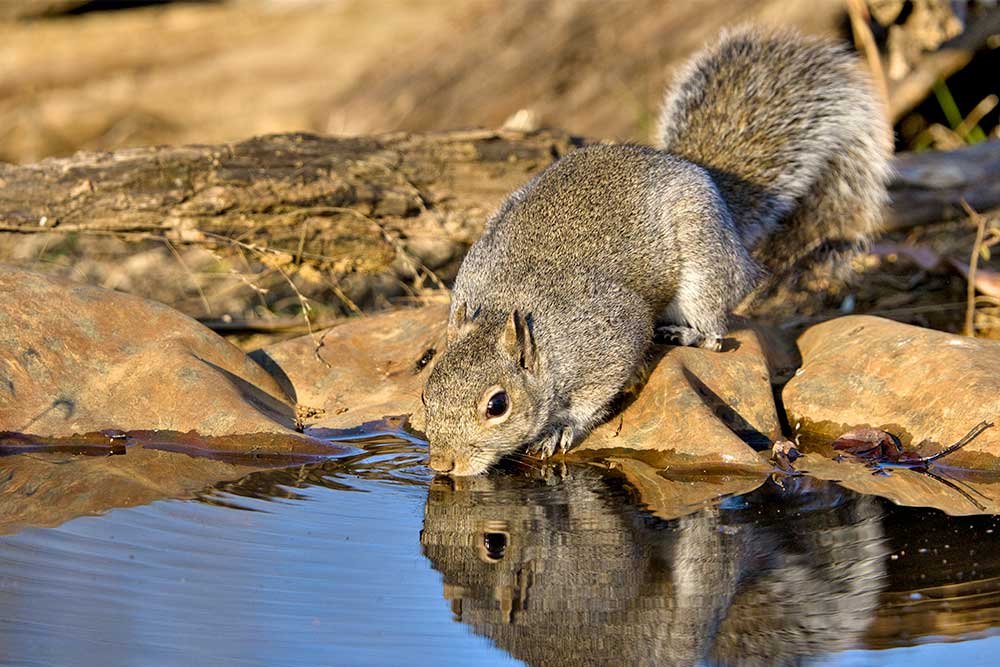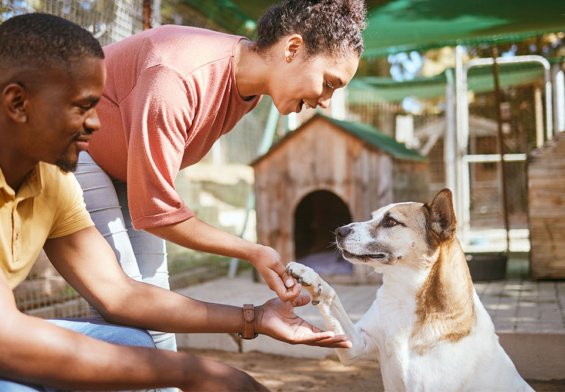Squirrels are common sights in many neighborhoods and parks, scampering up trees and foraging for food. But as temperatures rise, many people wonder: Do squirrels need water to drink in hot weather? The answer is yes—squirrels, like most animals, require water to survive, especially during scorching summer months. In this blog, we’ll dive deep into why squirrels need water, how much they consume, and how you can help keep them hydrated in hot weather.
Why Squirrels Need Water in Hot Weather
Water is essential for all living creatures, and squirrels are no exception. While squirrels can often get some moisture from the food they eat, such as fruits and nuts, water remains crucial, particularly in the hot summer months.
When temperatures soar, squirrels lose water more quickly through processes like breathing and sweating. Although squirrels don’t sweat like humans, they regulate their body temperature by panting, which increases water loss. Without access to fresh water, squirrels can become dehydrated, affecting their ability to forage, escape predators, and stay healthy.
How Much Water Do Squirrels Need?
The amount of water squirrels need depends on their size, diet, and activity level. On average, a squirrel drinks about 2-3 ounces of water per day, but this need increases during hot weather. Squirrels may seek out water sources more frequently, such as puddles, birdbaths, and even garden hoses, to stay hydrated.
How Do Squirrels Find Water?
Squirrels are resourceful creatures and will seek out any available water source. They often rely on natural sources like lakes, ponds, streams, or rainwater. However, during extended dry periods, these sources may be scarce. Squirrels have been known to visit birdbaths, pet water bowls, and even garden hoses to quench their thirst.
Signs a Squirrel is Dehydrated
It can be difficult to tell if a squirrel is dehydrated, but there are some signs you can watch for:
- Lethargy: Dehydrated squirrels may appear sluggish or less active.
- Reduced activity levels: They may spend less time foraging or playing.
- Dry fur: A lack of moisture can make their fur look less glossy.
- Panting: Squirrels may pant more heavily when dehydrated.
If you notice a squirrel in your yard or park exhibiting these symptoms, it may need access to water.

How to Help Squirrels Stay Hydrated in Hot Weather
One way to assist squirrels in hot weather is to provide them with a reliable water source. Here are some tips:
- Birdbaths: Birdbaths are an excellent way to give squirrels access to water. Place them in shaded areas to keep the water cool.
- Shallow Bowls: Put shallow bowls of water around your yard. Ensure they’re low enough for squirrels to reach but deep enough to hold sufficient water.
- Fresh Water: Change the water daily to prevent contamination, mosquitoes, and algae.
Can Squirrels Drink from Birdbaths?
Yes, squirrels can and do drink from birdbaths. These water sources are often easily accessible, especially when natural sources are limited. Squirrels will frequently visit birdbaths during hot weather to stay hydrated.
Do Squirrels Get Water from Their Food?
Squirrels can extract moisture from certain foods, but not enough to fully sustain them in hot weather. Foods like fruits, vegetables, and berries contain a small percentage of water. However, their primary diet of nuts and seeds lacks sufficient moisture, making external water sources critical for hydration.
Should You Offer Food Alongside Water?
While providing water is essential, consider offering food as well. Hydrating foods like apples, berries, or leafy greens can provide both nutrition and hydration, but be mindful not to overfeed or disrupt their natural diet.
The Impact of Dehydration on Squirrel Health
Prolonged dehydration can lead to serious health problems for squirrels. Dehydrated squirrels may experience:
- Weakness: Making them more vulnerable to predators.
- Heatstroke: Extreme temperatures combined with dehydration can lead to heatstroke, which can be fatal.
- Reduced Ability to Climb: Dehydration affects a squirrel’s coordination and energy, making it difficult for them to perform basic survival tasks like climbing trees.
Conclusion
In conclusion, squirrels absolutely need water in hot weather to drink. While they may find moisture in food and natural sources, extreme heat increases their water needs significantly. Providing fresh, clean water in birdbaths or shallow bowls can help local squirrel populations stay healthy and hydrated during hot weather. Remember, helping out wildlife is not only beneficial to them but also a rewarding experience for us. So the next time you spot a thirsty squirrel, you’ll know just what to do!
FAQs
1. Do squirrels need water every day?
Yes, squirrels need access to fresh water daily, especially in hot weather when they lose moisture more quickly.
2. Can squirrels drink water from puddles?
Yes, squirrels can drink from puddles, but puddles can sometimes contain harmful bacteria or chemicals. Providing clean water sources like bird baths or shallow bowls is safer.
3. How do squirrels cool down in hot weather?
Squirrels cool down by panting and seeking shade. They may also lie flat against cool surfaces like tree branches or the ground to dissipate heat.
4. What should I do if I find a dehydrated squirrel?
If you come across a dehydrated squirrel, provide fresh water in a shallow container and allow the squirrel to drink at its own pace. If it appears seriously ill, contact a local wildlife rehabilitator.
5. Can squirrels drink from garden hoses or sprinklers?
Yes, squirrels have been known to drink from garden hoses or sprinklers when other water sources are scarce. Always make sure the water is clean and free from contaminants.
Resources:
For more information about wildlife hydration and conservation efforts, check out these authoritative sources:




